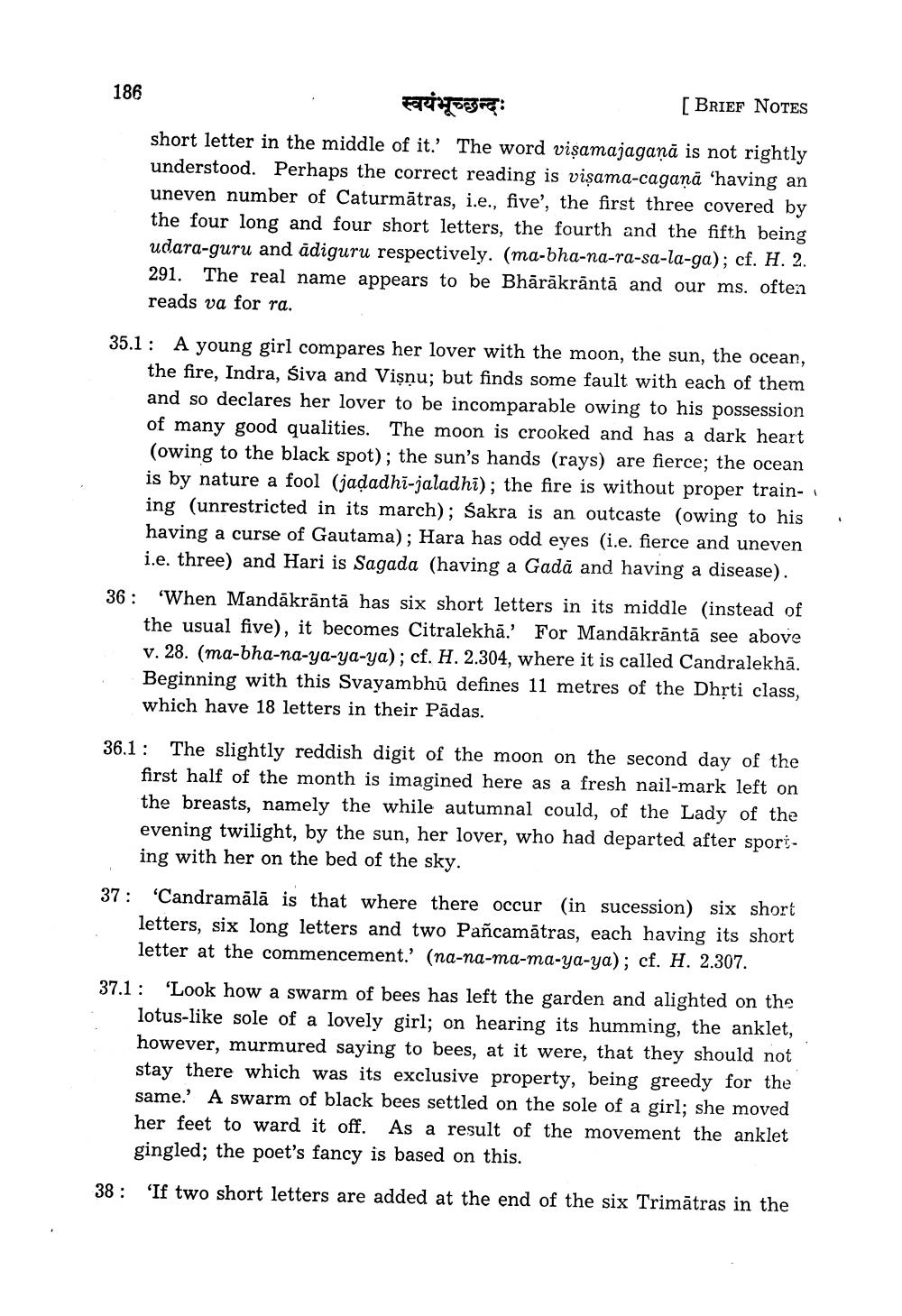________________
186
स्वयंभूच्छन्दः
[BRIEF NOTES short letter in the middle of it.' The word vişamajagaņā is not rightly understood. Perhaps the correct reading is vişama-caganā 'having an uneven number of Caturmātras, i.e., five', the first three covered by the four long and four short letters, the fourth and the fifth being udara-guru and ädiguru respectively. (ma-bha-na-ra-sa-la-ga); cf. H. 2. 291. The real name appears to be Bhārākrāntā and our ms. often reads va for ra.
35.1: A young girl compares her lover with the moon, the sun, the ocean,
the fire, Indra, śiva and Vişnu; but finds some fault with each of them and so declares her lover to be incomparable owing to his possession of many good qualities. The moon is crooked and has a dark heart (owing to the black spot); the sun's hands (rays) are fierce; the ocean is by nature a fool (jaờadhi-jaladhi); the fire is without proper training (unrestricted in its march); Śakra is an outcaste (owing to his having a curse of Gautama); Hara has odd eyes (i.e. fierce and uneven i.e. three) and Hari is Sagada (having a Gadā and having a disease).
36: 'When Mandākrāntā has six short letters in its middle (instead of
the usual five), it becomes Citralekhā.' For Mandākrāntā see above v. 28. (ma-bha-na-ya-ya-ya); cf. H. 2.304, where it is called Candralekhā. Beginning with this Svayambhū defines 11 metres of the Dhști class, which have 18 letters in their Pädas.
36.1: The slightly reddish digit of the moon on the second day of the
first half of the month is imagined here as a fresh nail-mark left on the breasts, namely the while autumnal could, of the Lady of the evening twilight, by the sun, her lover, who had departed after sporting with her on the bed of the sky.
37: 'Candramālā is that where there occur (in sucession) six short
letters, six long letters and two Pañcamātras, each having its short letter at the commencement.' (na-na-ma-ma-ya-ya); cf. H. 2.307.
37.1: 'Look how a swarm of bees has left the garden and alighted on the
lotus-like sole of a lovely girl; on hearing its humming, the anklet, however, murmured saying to bees, at it were, that they should not stay there which was its exclusive property, being greedy for the same.' A swarm of black bees settled on the sole of a girl; she moved her feet to ward it off. As a result of the movement the anklet gingled; the poet's fancy is based on this.
38: 'If two short letters are added at the end of the six Trimātras in the




